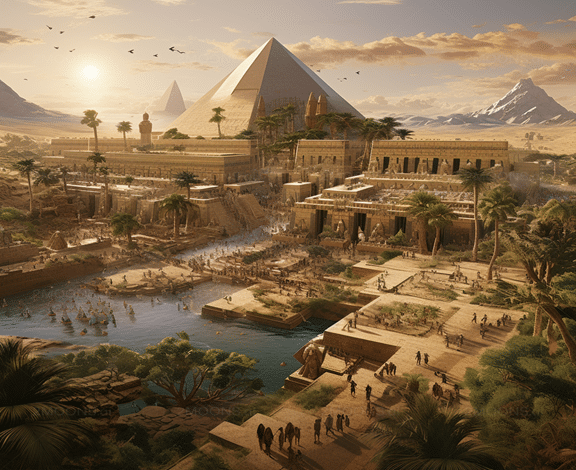
Cairo
Source: Al-Wafd newspaper
Dr. Ali Mohamed Al-Khouri
Egypt stands at a pivotal moment to invest in the artificial intelligence sector to enhance its economic growth and social progress. The ambition declared in the national vision is to effectively integrate artificial intelligence across various sectors, enabling qualitative leaps in sustainable development paths. The desired goal, according to the National Strategy for Artificial Intelligence, is to raise the contribution of artificial intelligence to more than $42.7 billion in the GDP by 2030, equivalent to 7.7% of the GDP by 2030.
It is noteworthy at the general level that the digital infrastructure in Egypt is witnessing rapid developments, with digital transformation initiatives in the government sector and increasing financial inclusion among the population, as 56% of adults in Egypt now have a bank account, and cash wallet accounts are expected to reach 57.9 million. By 2025. This digital readiness paves the fertile ground for AI integration across multiple sectors.
The Egyptian government, in partnership with global technology giants, is adopting strategic paths to develop digital infrastructure and digital transformation and provide a conducive environment for artificial intelligence applications. These partnerships can open broad horizons for artificial intelligence applications that promise to revolutionize vital sectors such as health care, education, agriculture, tourism, and financial services, enhance the efficiency of services and provide innovative solutions to contemporary challenges.
For example, in the healthcare sector, AI can bring about revolutionary developments in diagnosis, treatment and drug development methods, improving patient outcomes and healthcare delivery. AI-powered education tools can also improve learning experiences, adapt education to individual student needs, and hone students with the required skills. In agriculture, AI technologies can increase agricultural yields, improve resource use, enhance the efficiency of supply chains, and strengthen food security and agricultural productivity. In the tourism sector, AI can improve tourists’ experiences through personalized recommendations, virtual assistance, improved service delivery, and improved tourism revenues. The use of artificial intelligence in financial services would contribute to combating fraud, improving banking services, simplifying financial operations, and achieving broader financial inclusion and greater efficiency.
For Egypt to benefit from the transformative potential of AI, it is necessary for policymakers to address some existing challenges, including skills gaps, the need for a strong digital infrastructure, and secure adequate funding for AI projects, in addition to encouraging public-private partnerships to drive innovation and intelligence applications. Artificial intelligence, investing in education and training programs to build a skilled workforce capable of advancing the development of artificial intelligence, and adopting regulatory frameworks and standards that ensure the use of artificial intelligence in responsible ways and promote ethical and socially impactful uses, in order to gain public confidence and ensure maximum benefit from these technologies in serving society.
Given the broad potential that artificial intelligence holds, and the efforts made at the national level to adopt it, critical thinking and deep analysis remain the basis for understanding how to employ this technology to advance economic and social development in Egypt.
| About | |
|---|---|
| Initiatives | |
| Knowledge | |
| Services | |
| Media Center | |
| Contact |